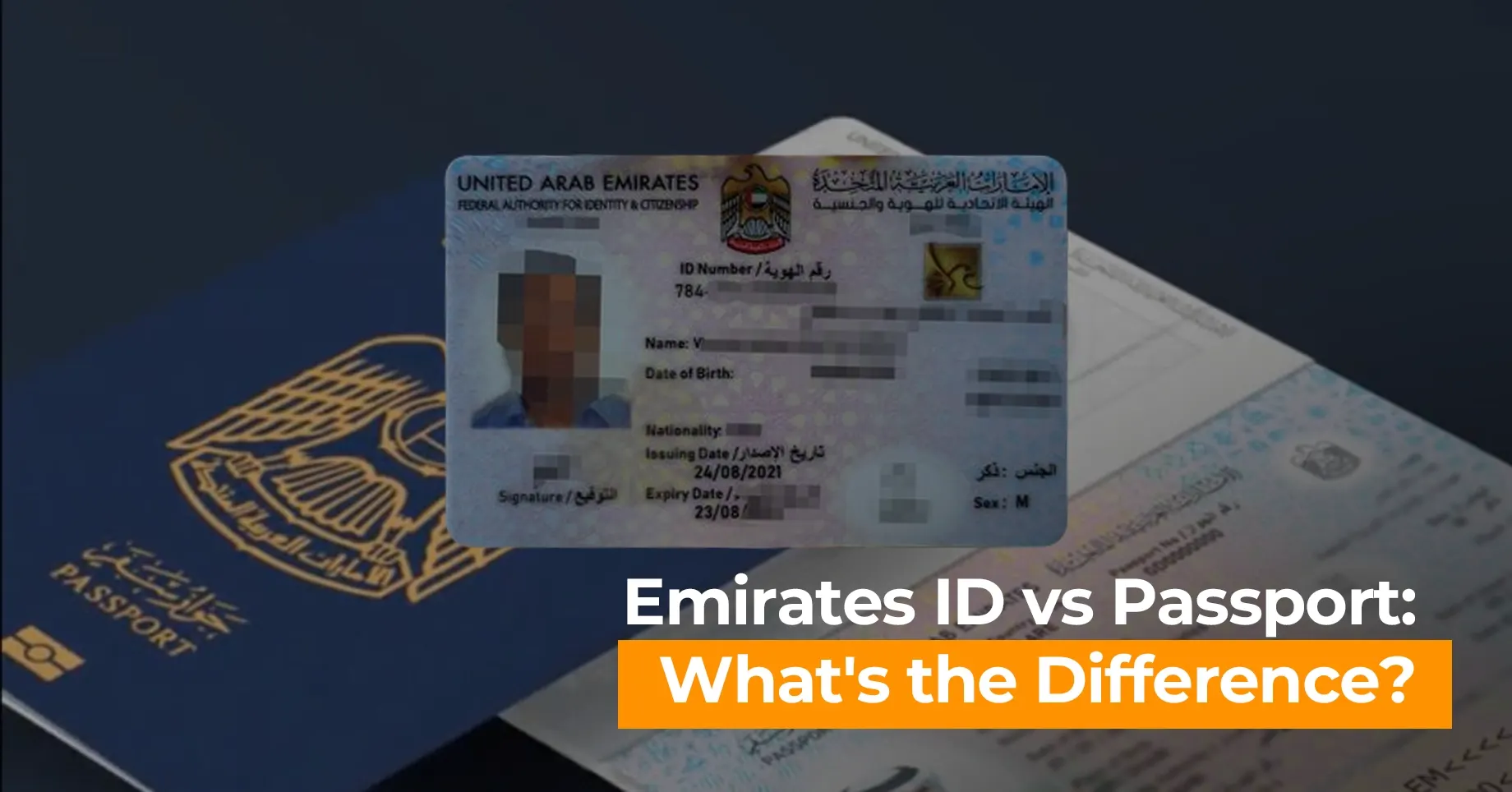In 2024, as we navigate an increasingly interconnected world, the importance of identification documents cannot be overstated. Among these, the Emirates ID and passport are essential for life in the UAE residents and citizens. Though they each serve crucial roles, their functions diverge significantly. Understanding the nuanced differences between an Emirates ID and a passport is essential for learning how these documents impact both daily living and international travel. Let's delve into their distinctive characteristics, their roles, and why each holds its place of importance.
What is an Emirates ID?
The Emirates ID is a vital identity card issued by the Federal Authority for Identity and Citizenship (ICA). It's not just a piece of plastic but a key to accessing various services within the UAE. Is Emirates ID a national identity card? Yes, it serves as the official proof of identity for all residents and citizens in the UAE.
Key Features of the Emirates ID:
-
Personal Identification Number (PIN): This unique identifier is crucial for accessing governmental and private sector services.
-
Personal Information: This includes your name, nationality, gender, and date of birth, neatly encoded on the card.
-
Biometric Data: The card is equipped with advanced biometric features, such as fingerprints and facial recognition, enhancing security and ensuring accurate identification.
-
Chip Technology: Embedded with a sophisticated chip, it stores detailed personal information, including residency status.
What is a Passport?
A passport is an internationally recognized travel document issued by a government. It certifies identity and nationality, serving as a key to crossing borders. This document is essential for international travel and includes important details such as the document number passport and passport ID number.
Key Features of a Passport:
-
Travel Authorization: Essential for entering and exiting foreign countries, subject to visa requirements.
-
Personal Information: Contains your name, photograph, nationality, date of birth, and passport ID number.
-
Visa Pages: Includes dedicated pages for visas and entry/exit stamps from various nations.
-
Validity Period: Generally valid for 5 to 10 years, after which it must be renewed.
Comparing Emirates ID and Passport
Primary Function:
-
Emirates ID: Essential for local identification, providing access to government and private sector services within the UAE.
-
Passport: Vital for international travel, verifying identity and nationality abroad.
Usage Scope:
-
Emirates ID: Required for all UAE residents and citizens, used for local identification, banking, healthcare, and more.
-
Passport: Used globally for travel, immigration, and securing visas.
Validity and Renewal:
-
Emirates ID: Validity ranges from 2 to 10 years, contingent on residency status. Renewals are generally straightforward and can often be handled online.
-
Passport: Valid for 5 to 10 years, depending on the issuing country. Renewal requires a formal application process through embassies or consulates.
Data and Security Features:
-
Emirates ID: Boasts advanced biometric and digital security features, including an embedded chip for storing sensitive data.
-
Passport: Equipped with security features like watermarks, holograms, and for biometric passports, an embedded chip.
Legal Requirements:
-
Emirates ID: Mandatory for UAE residents and citizens over a certain age, with penalties for non-compliance.
-
Passport: Essential for international travel; citizens must hold a valid passport for identification abroad.
Why Are Both Important?
The Emirates ID is required for everyday life within the UAE, facilitating access to various services and ensuring keeping to local regulations. Conversely, a passport whether a UAE passport or an Emirati passport is crucial for international travel and serves as proof of nationality. Both documents are complementary, each fulfilling distinct yet essential functions. Understanding their roles and maintaining them in good standing is vital for navigating both local and global landscapes efficiently.
FAQs
1. What are the key differences between an Emirates ID and a passport?
The Emirates ID is used for local identification and accessing services within the UAE, while a passport is essential for international travel and verifying nationality abroad.
2. How long is the validity period for an Emirates ID and a passport?
-
Emirates ID: Valid for 2 to 10 years depending on residency status.
-
Passport: Typically valid for 5 to 10 years.
3. Can an Emirates ID be used for international travel?
No, the Emirates ID is not valid for international travel. You need a passport to enter and leave foreign countries.
4. How often do I need to renew my Emirates ID and passport?
-
Emirates ID: Renewal is based on residency status, typically every 2 to 10 years.
-
Passport: Renewed every 5 to 10 years.
5. What documents do I need to apply for or renew an Emirates ID or passport?
-
Emirates ID: Requires proof of residency, UAE address, and biometric data.
-
Passport: Requires proof of nationality, identification documents, and sometimes proof of a previous passport.
Conclusion
In 2024, the distinctions between an Emirates ID and a passport are clear, with each document playing a unique and vital role. The Emirates ID is crucial for local interactions and services within the UAE, while the passport whether a UAE passport or an Emirati passport is your gateway to international travel and global identity. Keeping both documents current and in optimal condition ensures seamless access to services and opportunities both locally and abroad.
